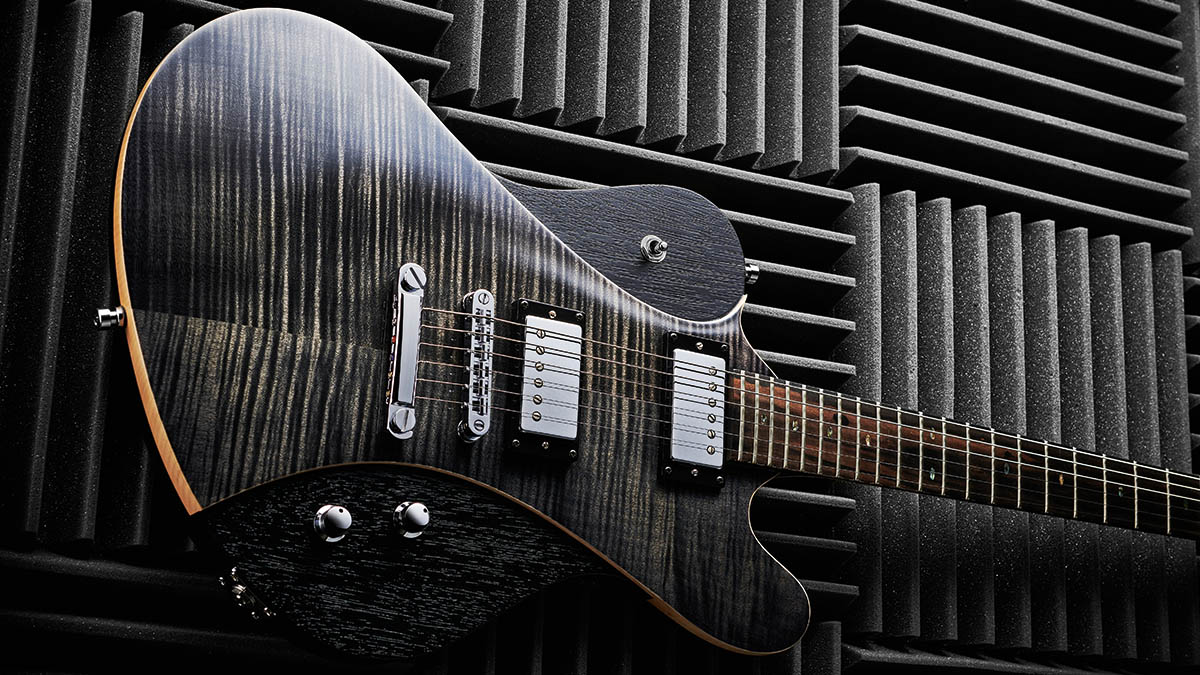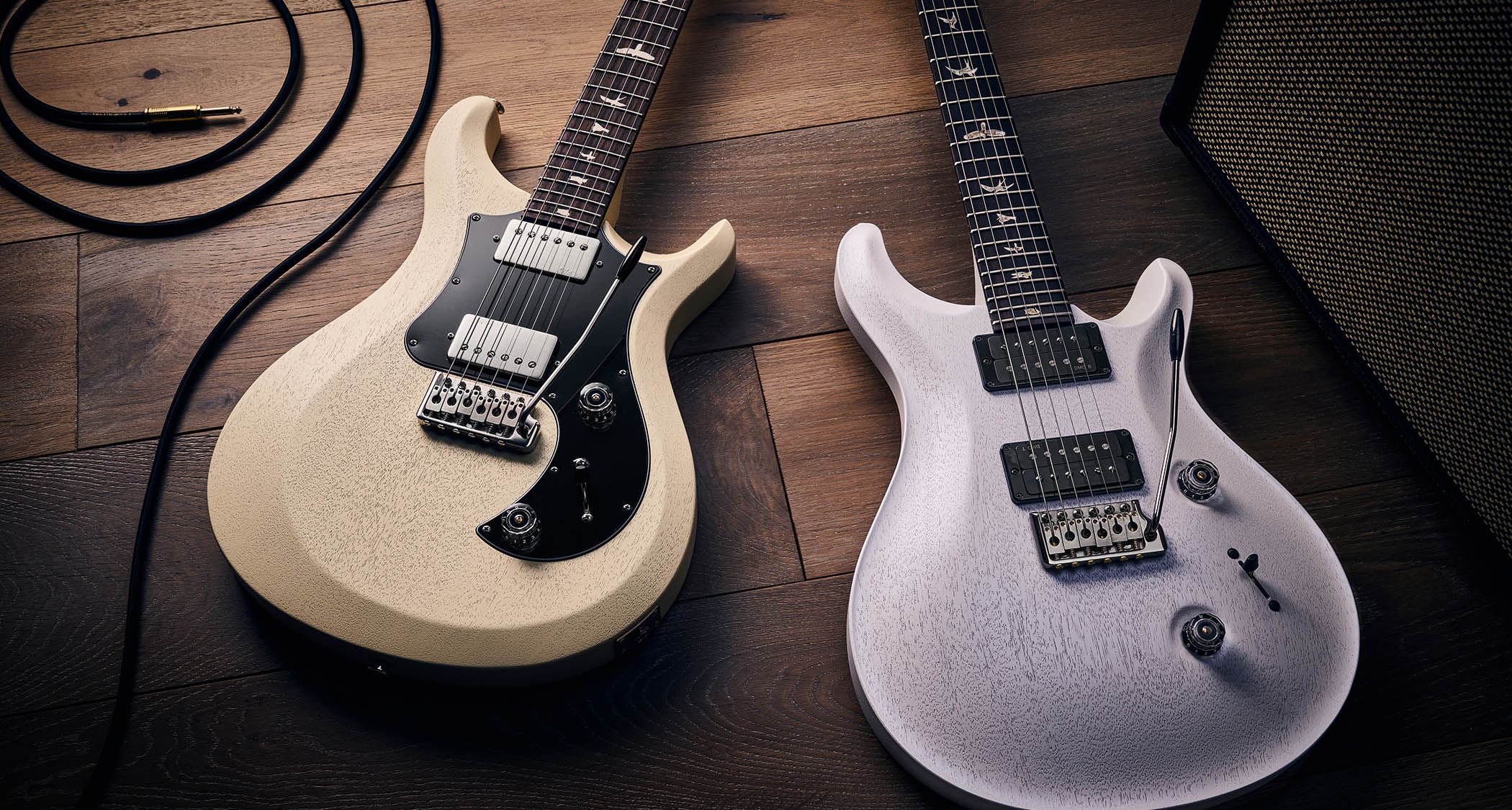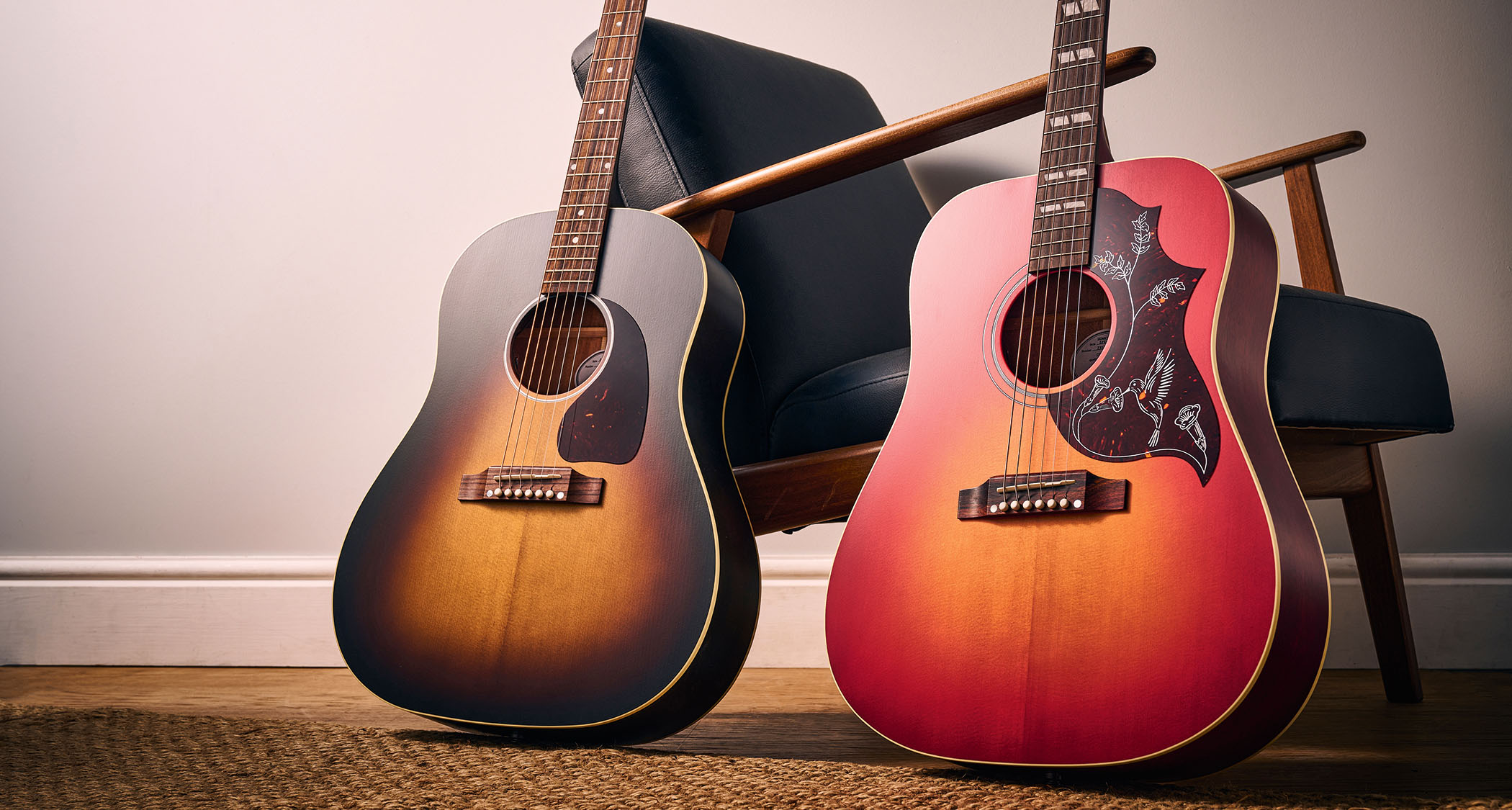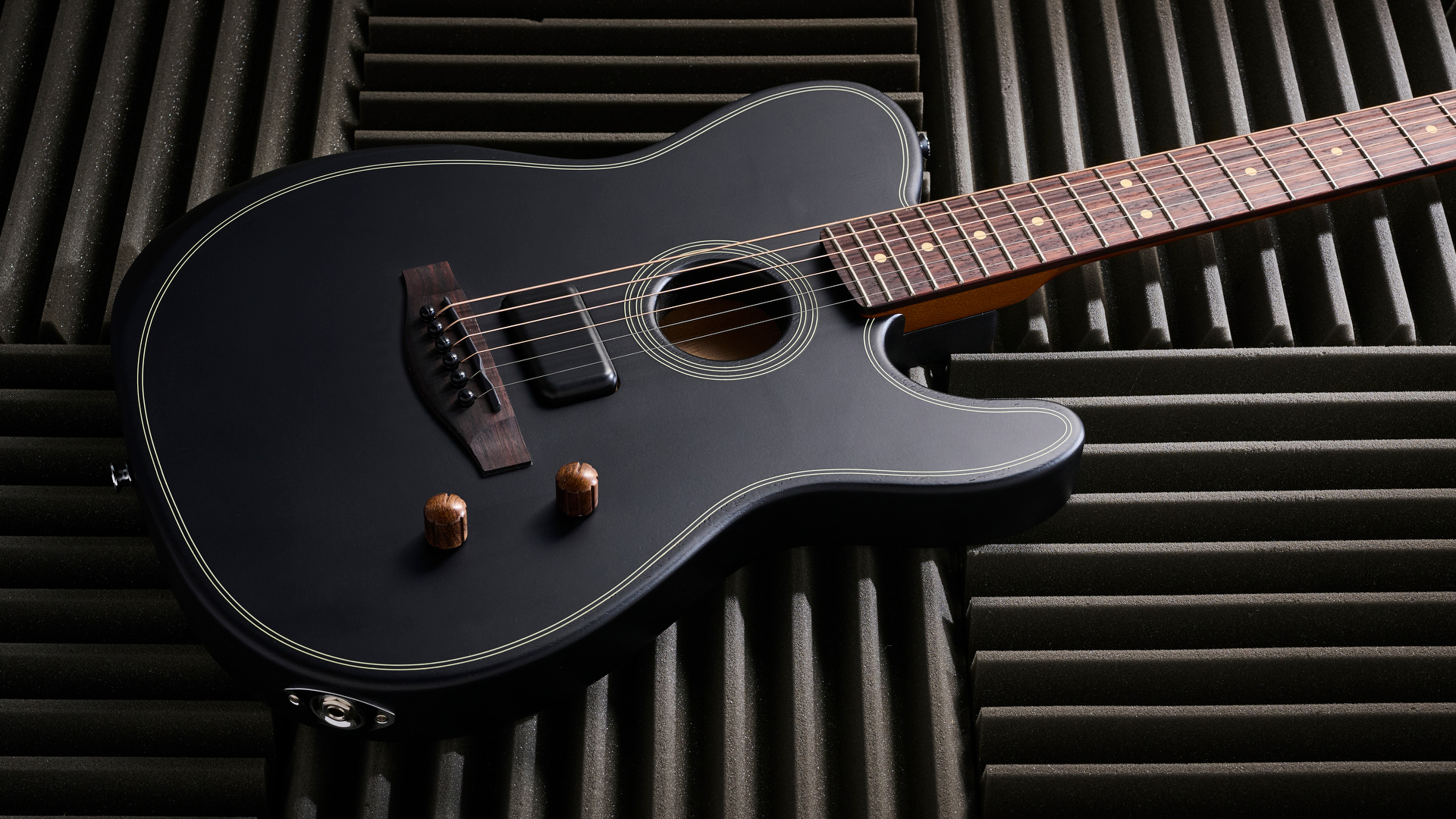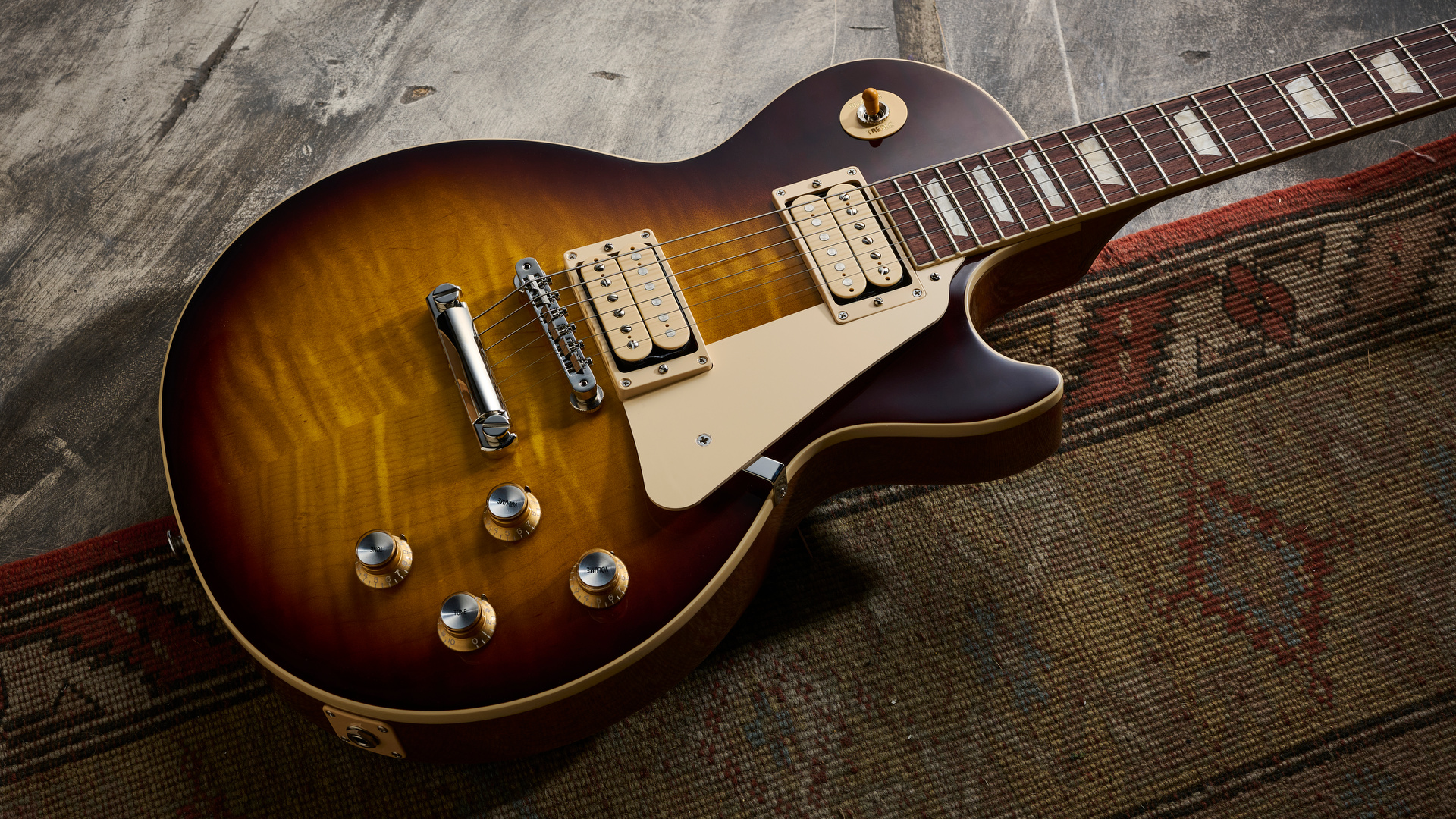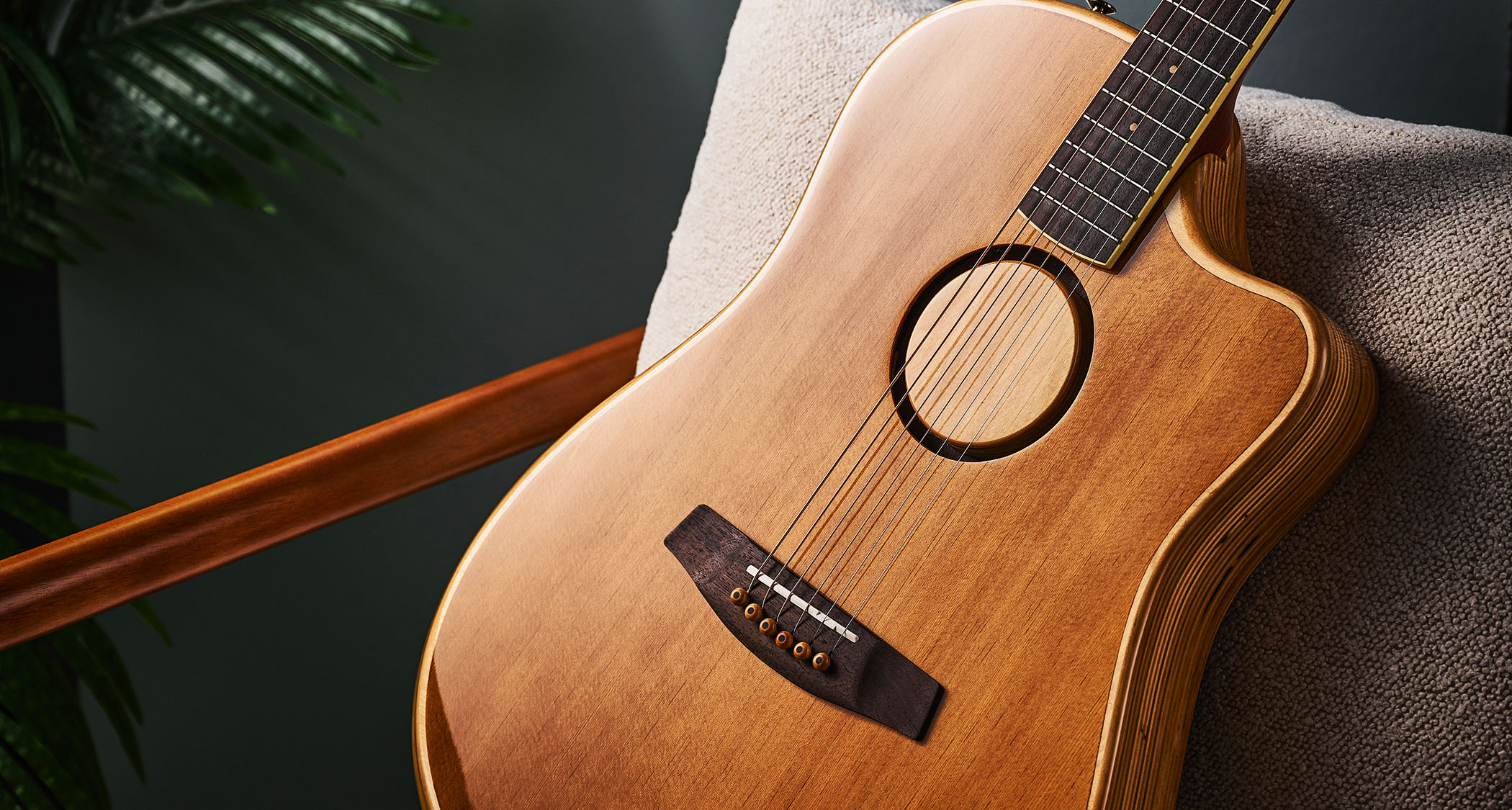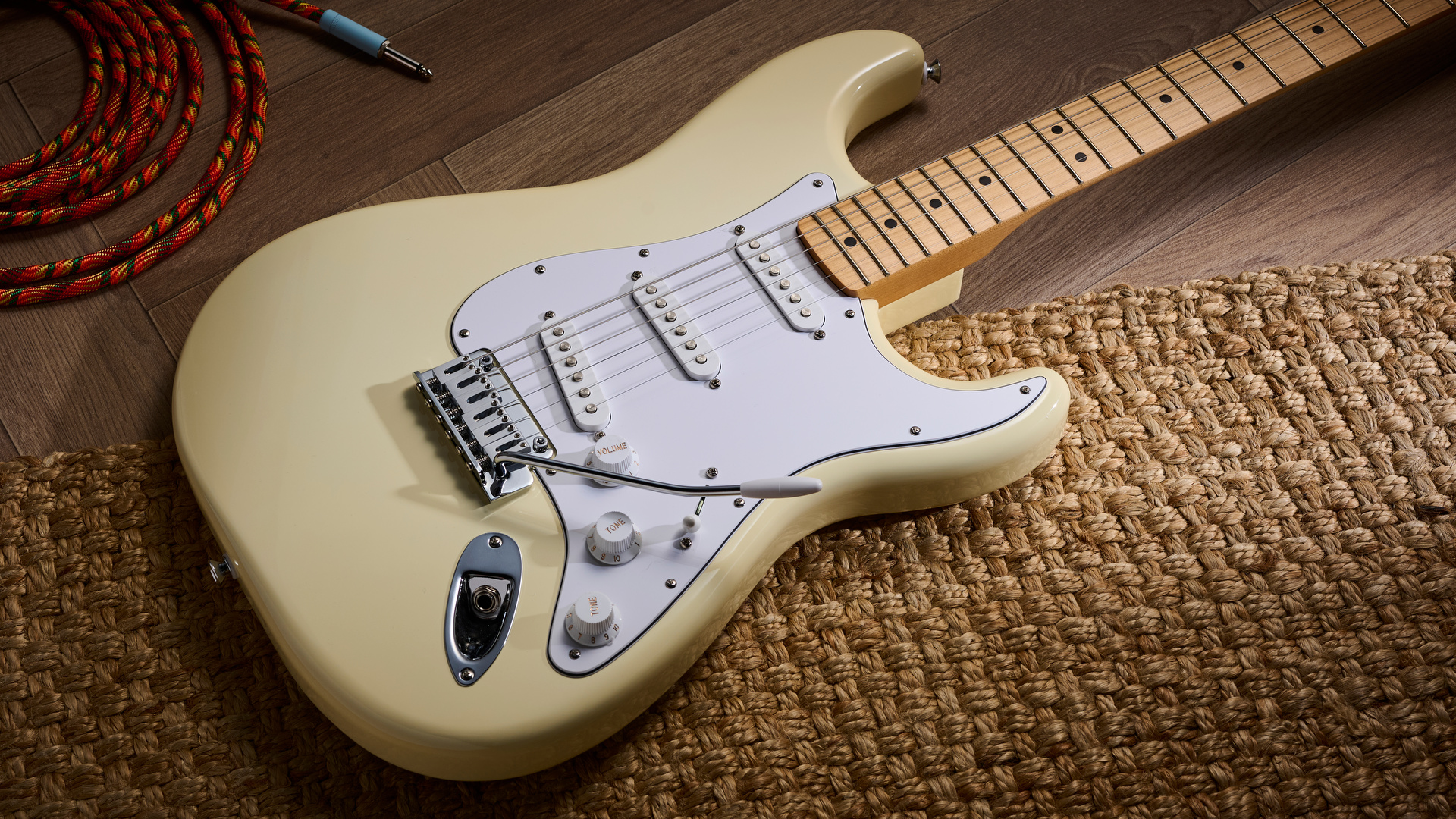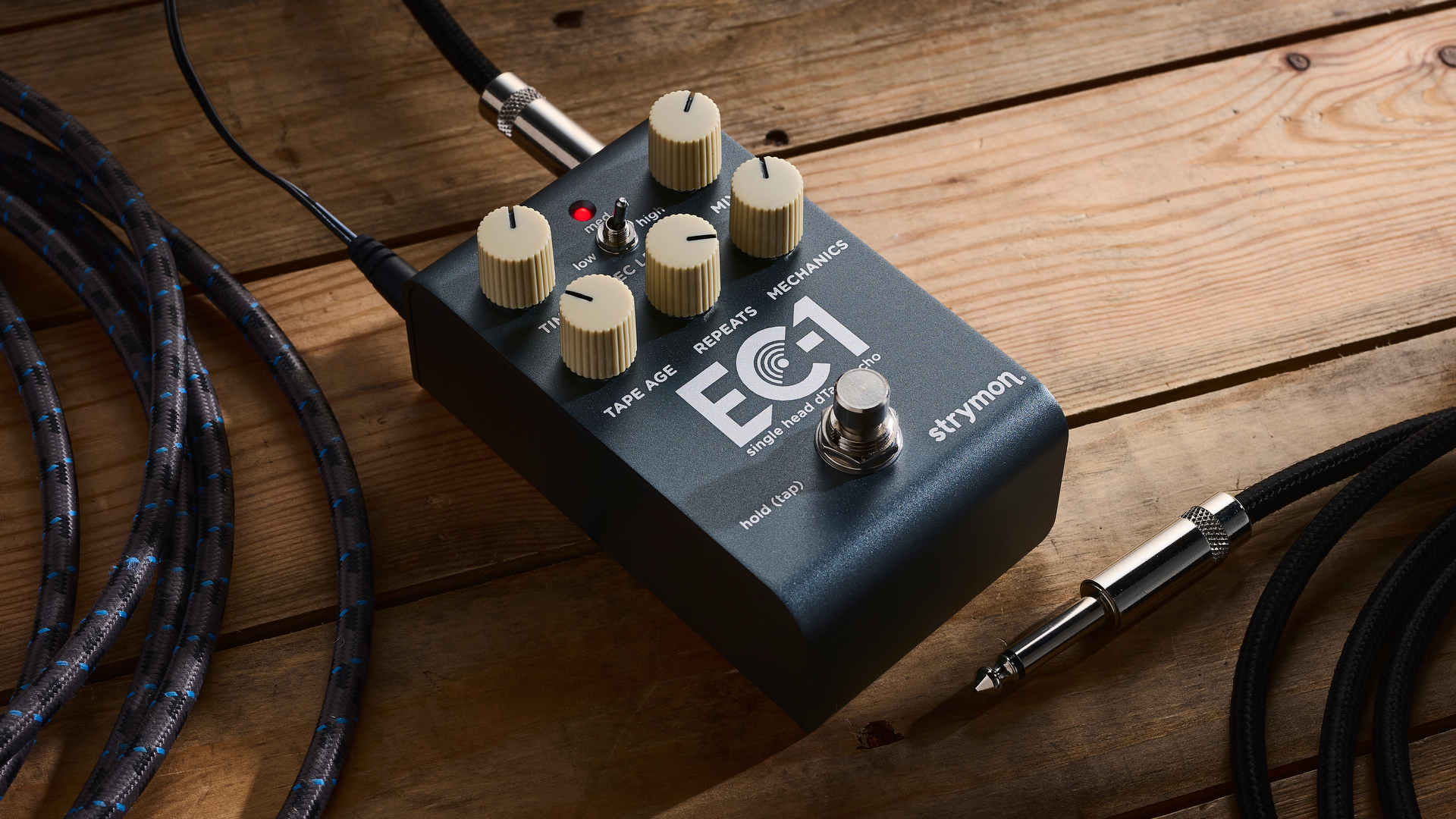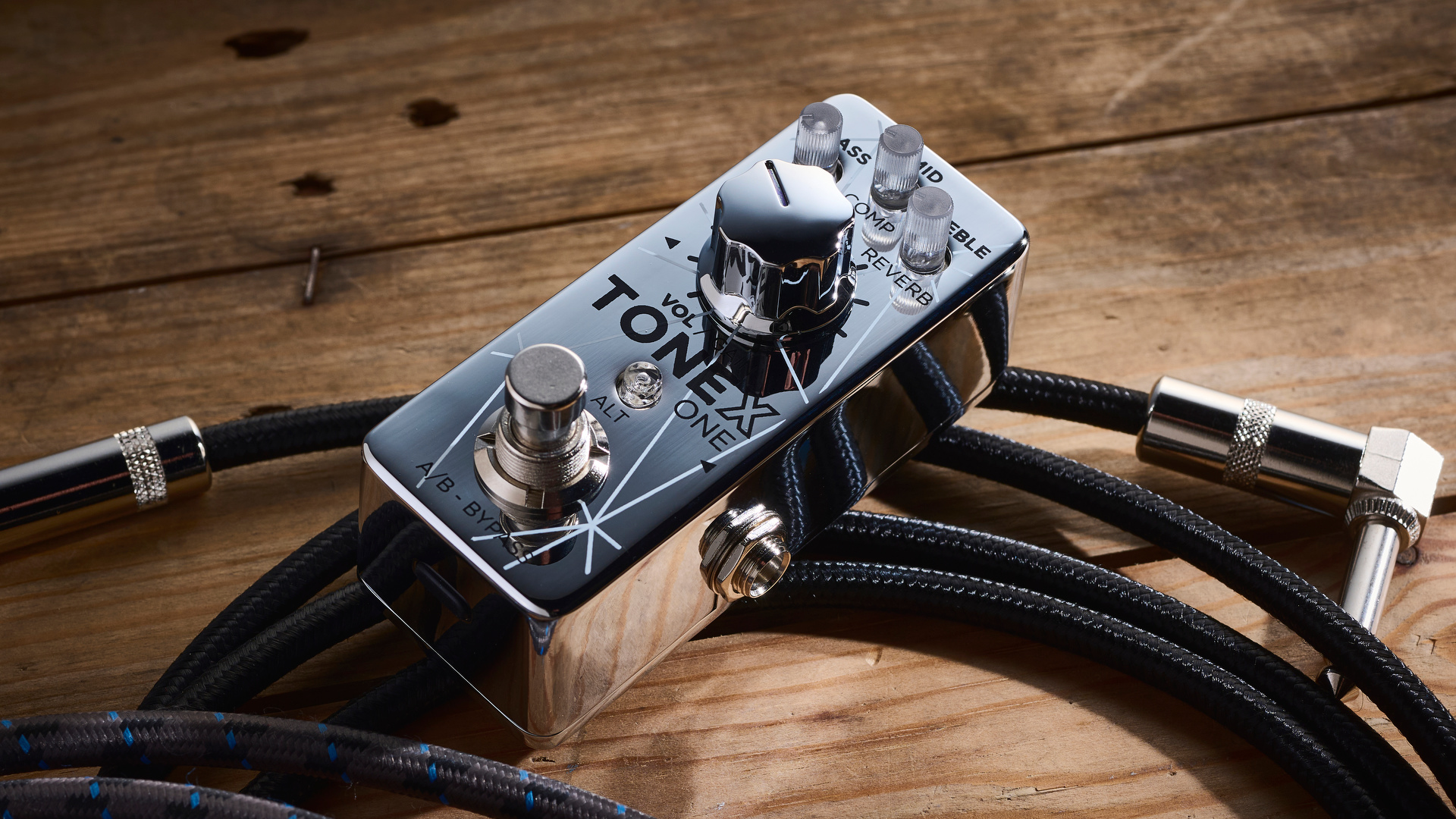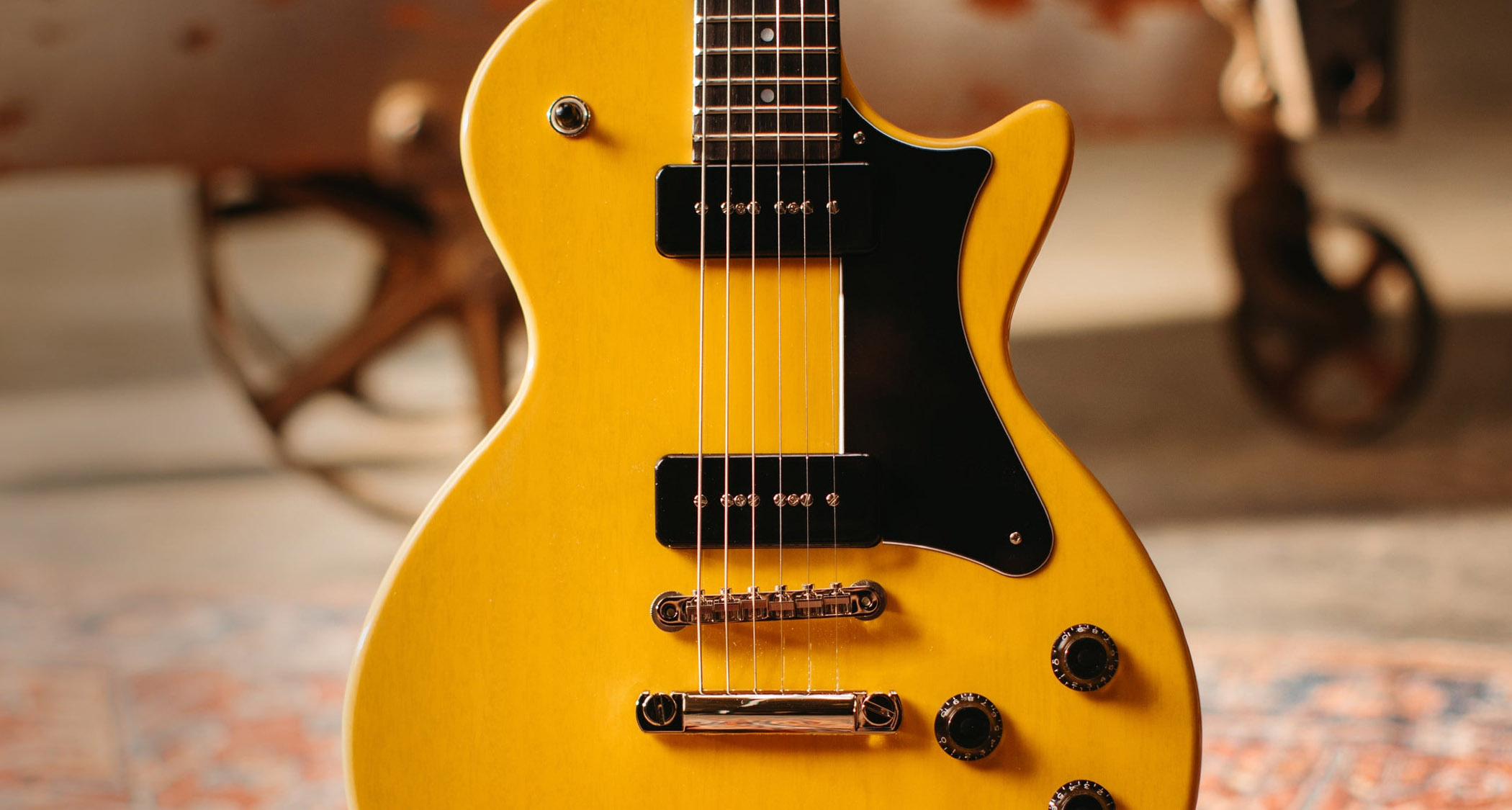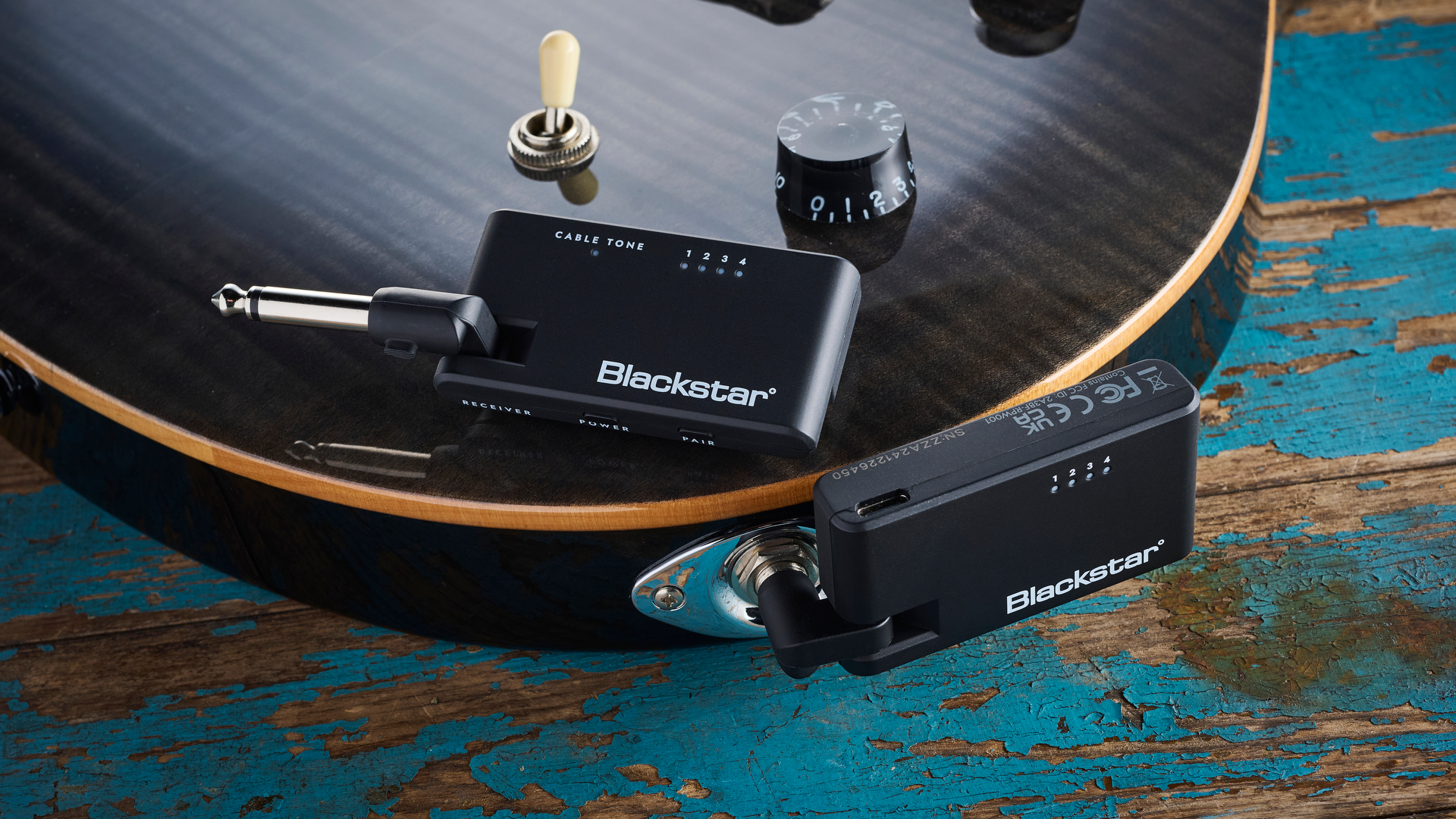Guitar World Verdict
There’s no lack of rock power here thanks to the bridge-placed Seymour Duncan JB – still so valid after all these years – yet there’s surprising subtlety to the guitar in the split mode that extends its repertoire... it’s a welcome slice of unique style in an increasingly me-too market.
Pros
- +
Innovative body design and construction tidy build.
- +
Excellent neck shape.
- +
Playability.
- +
Rock-ready sounds but with coil-split subtlety.
Cons
- -
Not a classic shape and only comes with a gigbag.
You can trust Guitar World
You don’t need us to tell you that there’s a rich seam of very high-quality guitar makers throughout Europe that, if we’re honest, we often overlook.
Framus, owned by Warwick, certainly falls into that category – and visiting its factory a few years ago was like dropping into an otherworldly futuristic dream.
Nobody that we’re aware of makes guitars (or world-class basses) quite like Warwick. That said, the modern Framus instruments that we’ve played over the past few years have an almost organic quality – obviously imbued by the spirit of Warwick – and from the moment we pull it out of its sturdy Rockbag gigbag, our Idolmaker sample feels very luthier-made.
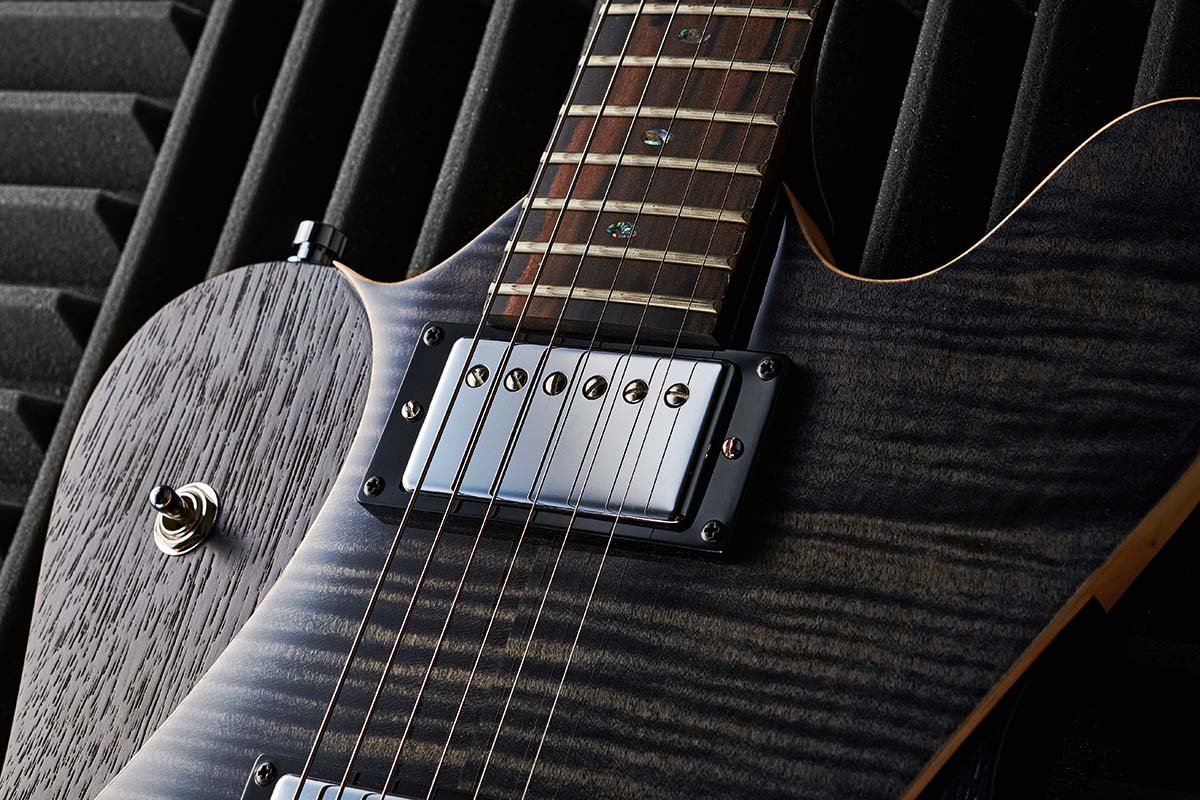
Exactly the origin of the Idomaker design we’re not sure, but we’d wager the good old reverse Firebird was there in the inspiration. One of the many clever things about this design, however, is that it doesn’t feel huge – like Gibson’s big ol’ ’bird – and it’s no boat anchor, either.
The mahogany body is actually quite sculptural. Both top and back are curved, while the centre maple section is raised approximately 4.5mm above the mahogany – at its thickest point by the neck join it’s actually 20mm thick dropping slightly by the base, closer to 18mm.
The body is also a lot thinner by the bass-side lower bout, around 12.6mm at the thinnest rim, and on the treble side it’s thicker at 32mm, while the thickness rises to 46.5mm at the centre of the body.
Not only is that inset maple highly unusual, combined with the different thicknesses, we’d say it’s unique, and the contrast is enhanced by the gloss finish of the maple and a more satin open-grain opaque black to the mahogany, including the neck back. There’s certainly some SG in the design, too, not least the fact that the neck joins the body at the 19th fret with a minimal curved heel.
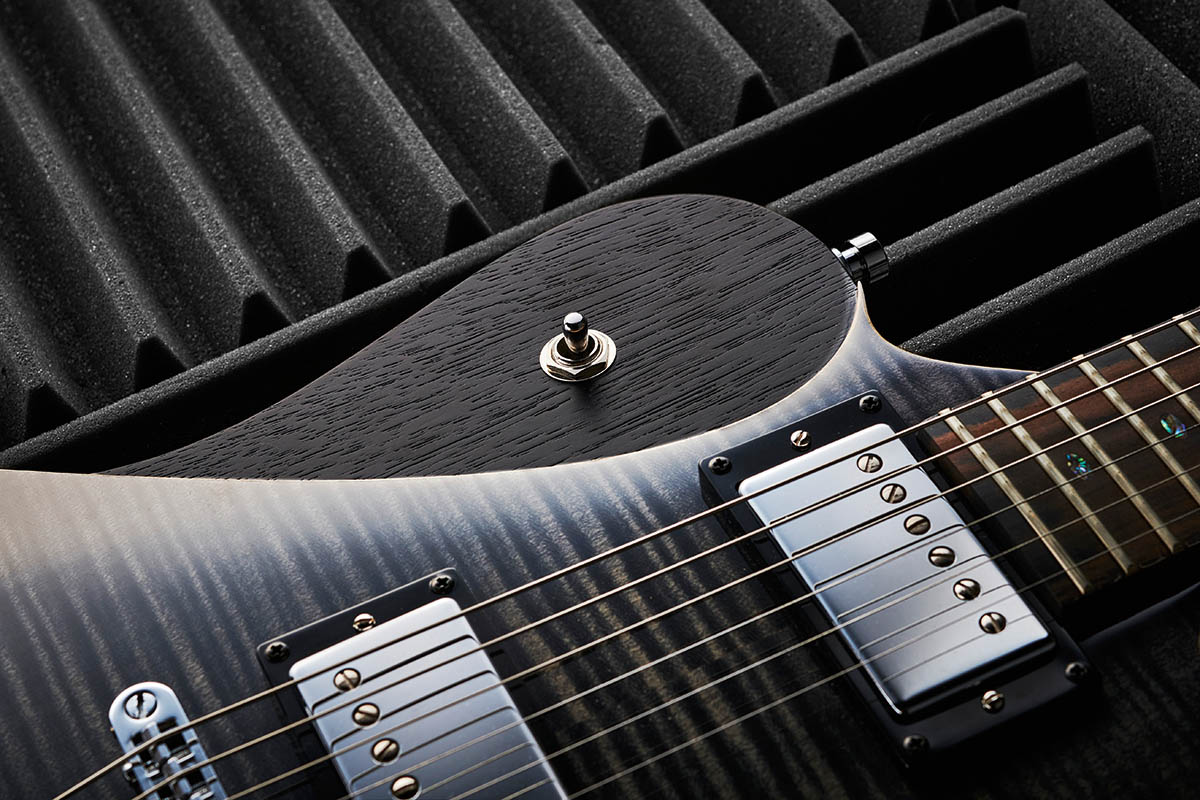
The compact back-angled headstock helps to avoid any neck dive, too, as well as providing nearly straight string-pull over the Graph Tech nut. In contrast to the unique quality of the design, the hardware, pickups and electrics are more generic but far from lacking.
The TonePros ‘Nashville’-style bridge and stud tailpiece lock to their posts, the wide-diameter bridge posts are slotted, and fine height adjustments are dead simple. The Graph Tech Ratio tuners have rear locks and also different gear ratios: from 12:1 to 39:1.
As Graph Tech explains: “One turn is about one tone change on all strings, making tuning, retuning and open tunings easier, quicker and more intuitive.” Whatever the science, they’re very positive and firm in use, and this is one very stable guitar, tuning-wise, with minimal neck flex despite its length.
The dual covered humbuckers are Seymour Duncan’s best-selling pair with a simple circuit that takes zero adjustment. They’re a bit of an obvious choice, and you’ll find these pickups on many instruments at a much lower price point, but it’s hard to argue with the no-frills proposition.
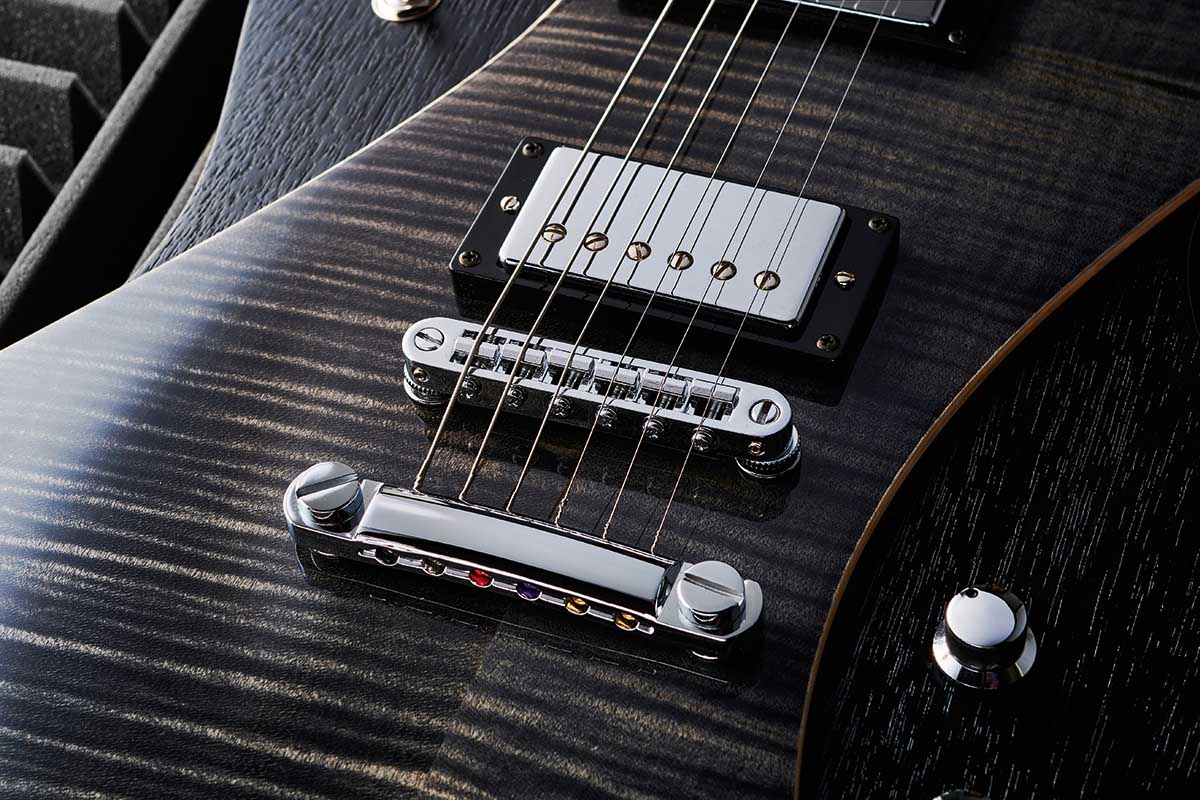
Feel & Sounds
Plugged in, we’re reminded once more of the SG in terms of the mid-focused response here, particularly with the JB at the bridge, which really kicks in the midrange with slightly less width than our reference Les Paul Classic – it has a more trimmed bass response and rounded top-end – and a lot more power.
The tone control’s coil-split switch voices the screw coil of each humbucker and is very valid on the JB, producing a really usable and edgy hot single-coil voice.
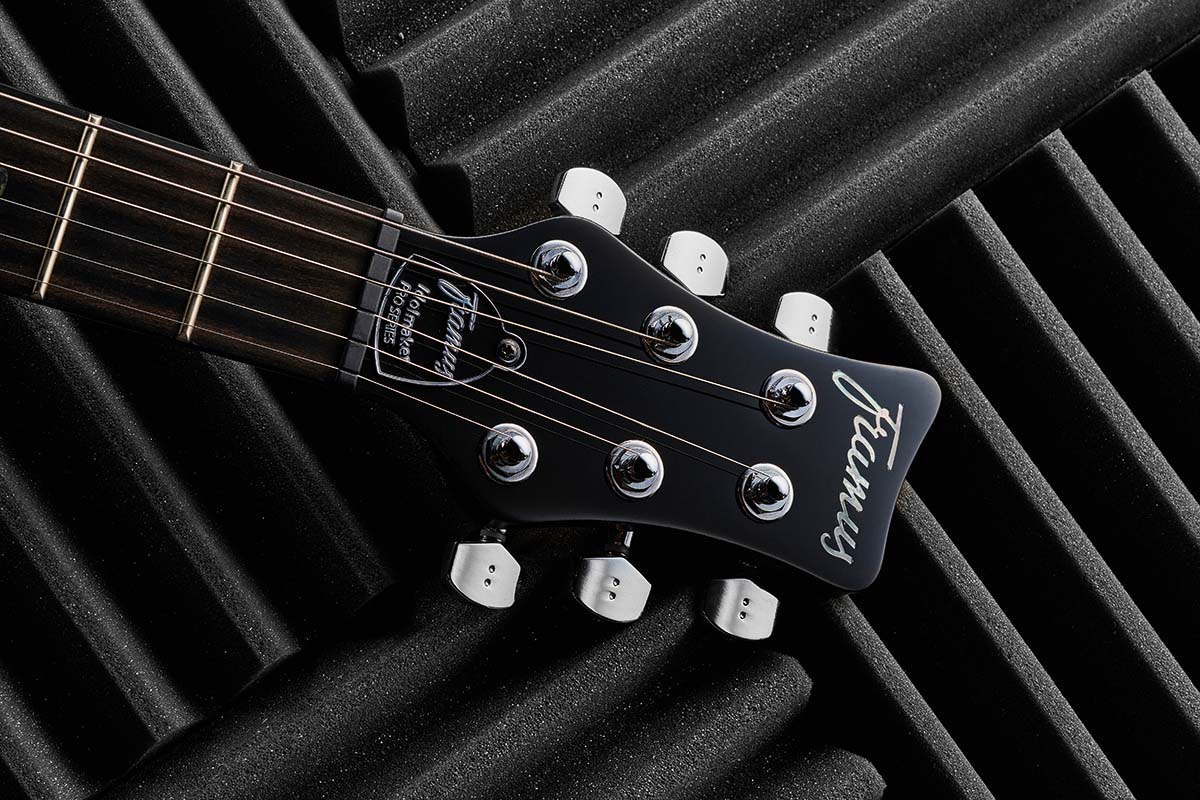
The ’59 at the neck pulls back the bluster for a pretty classic neck voice, and whereas on a brighter-sounding chassis it can be a little too crisp, here it really suits. Again, the coil-split can be over-bright, too, but not on this platform, and mixed with the JB’s split adds some welcome funk and bounce. Not for the first time, we spent a lot of time in this split mode.
The volume control is very well tapered and sweetens the high-end of that split JB very nicely. Conversely, in full coil mode we’d be tempted to add a treble bleed. The simple volume, tone and three-way selector means changes are fast, and it’s far from a one-trick pony.
That said, the pretty large jumbo frets (approximately 2.9mm by 1.2mm) do suggest a more modern aim, but in combination with an excellent neck shape (20.5mm in depth at the 1st fret and filling out to 23.5mm by the 12th) it’s not dissimilar to Gibson’s ’60s profile, for example, and it feels a little rounder and fuller than previous modern Framus guitars we’ve had in our hands.
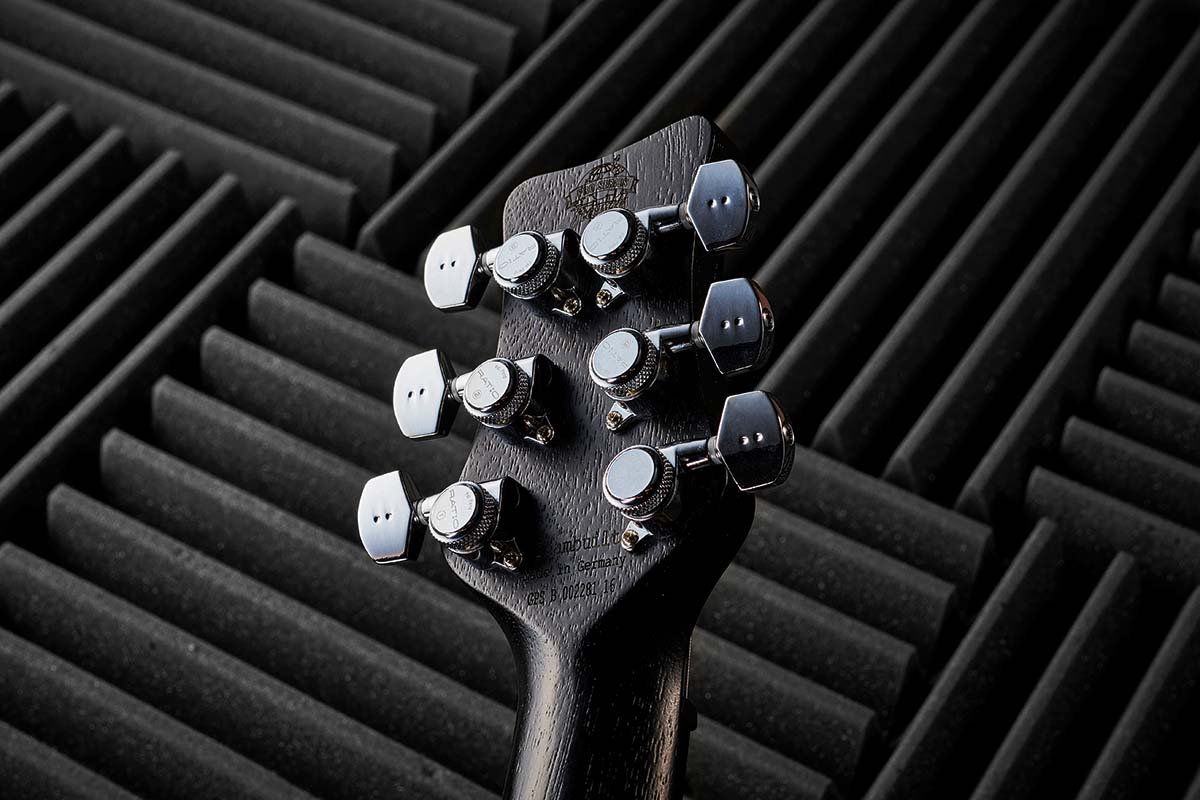
It’s the sort of shape that ‘disappears’, likewise the classic 305mm (12-inch) radius fingerboard. For us, it’s the mark of a good guitar design: the features don’t get in the way. As we said, the weight is good and, strapped on, the neck extends more than a Les Paul or Strat, but it doesn’t feel overlong like an SG. Unlike many ‘shapes’, the Idolmaker has very little to adjust to.
Verdict
Framus might have some way to go to build its brand, but you can’t knock the quality and the reassuring sense of a very well-built, stable guitar that’s a definite stage friend.
The actual body and construction with its sculptural style is unique, but unlike many other forward-looking designs it feels a lot more classic than its outline suggests.
There’s no lack of rock power here if you want it, thanks to the bridge-placed Seymour Duncan JB – still so valid after all these years – yet there’s surprisingly subtlety to the guitar in the split mode that extends its repertoire.
You could actually see the Idolmaker in a host of more retro-y finishes – even a non-reverse style – but as is it’s a welcome slice of unique style in an increasingly me-too market.
Specs
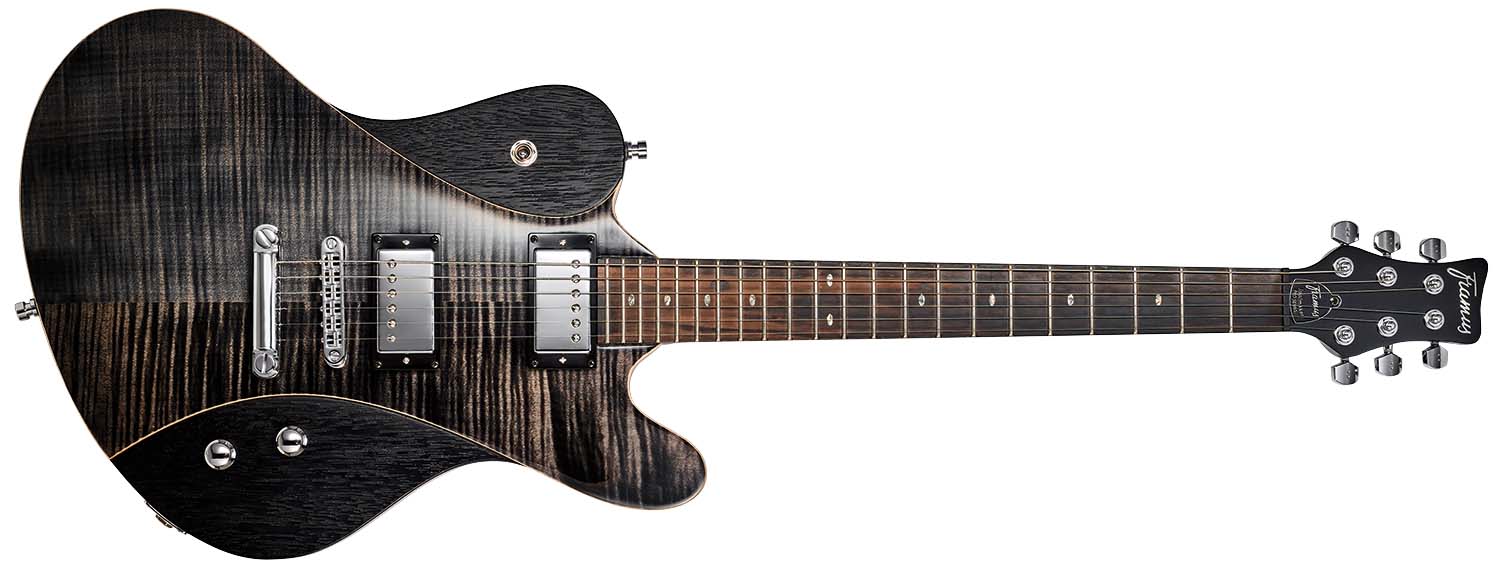
- PRICE: $3,233 approx / £2,519 (inc gigbag)
- ORIGIN: Germany
- TYPE: Original offset shape, solidbody electric
- BODY: Mahogany with inset AAA figured maple
- NECK: Mahogany, glued-in
- SCALE LENGTH: 628mm (24.75”)
- NUT/WIDTH: Graph Tech Black Tusq/43.3mm
- FINGERBOARD: Tiger-stripe ebony, small oval abalone inlays, illuminated side-dots, 305mm (12”) radius
- FRETS: 22, jumbo
- HARDWARE: TonePros locking ‘Nashville’-style bridge and stud tailpiece, Graph Tech Ratio real-lock tuners – chrome plated
- STRING SPACING, BRIDGE: 51mm
- ELECTRICS: Chrome covered Seymour Duncan ’59 at neck, JB at bridge, 3-way toggle pickup selector switch, master volume and tone control (with pull switch coil-split)
- WEIGHT (kg/lb): 3.67/8.1
- OPTIONS: No, but check out the Framus Custom Shop (£POA)
- RANGE OPTIONS: The Idolmaker also appears in the Chinese-made D-Series at £782
- LEFT-HANDERS: Yes, £POA
- FINISHES: Nirvana Black transparent high polish (as reviewed), Solid Black high polish, Burgundy Blackburst Transparent high polish, and Vintage Sunburst Transparent high polish with Nirvana Black Transparent satin b/s

Dave Burrluck is one of the world’s most experienced guitar journalists, who started writing back in the '80s for International Musician and Recording World, co-founded The Guitar Magazine and has been the Gear Reviews Editor of Guitarist magazine for the past two decades. Along the way, Dave has been the sole author of The PRS Guitar Book and The Player's Guide to Guitar Maintenance as well as contributing to numerous other books on the electric guitar. Dave is an active gigging and recording musician and still finds time to make, repair and mod guitars, not least for Guitarist’s The Mod Squad.
“It holds its own purely as a playable guitar. It’s really cool for the traveling musician – you can bring it on a flight and it fits beneath the seat”: Why Steve Stevens put his name to a foldable guitar
“Finely tuned instruments with effortless playability and one of the best vibratos there is”: PRS Standard 24 Satin and S2 Standard 24 Satin review
